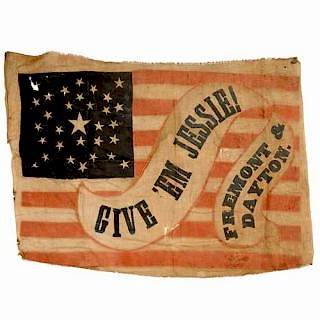Zachary Taylor ALS, June 1824
About Seller
6270 Este Ave.
Cincinnati , OH 45232
United States
With offices in Cincinnati, Cleveland and Denver, Cowan’s holds over 40 auctions each year, with annual sales exceeding $16M. We reach buyers around the globe, and take pride in our reputation for integrity, customer service and great results. A full-service house, Cowan’s Auctions specializes in Am...Read more
Two ways to bid:
- Leave a max absentee bid and the platform will bid on your behalf up to your maximum bid during the live auction.
- Bid live during the auction and your bids will be submitted real-time to the auctioneer.
Bid Increments
| Price | Bid Increment |
|---|---|
| $0 | $25 |
| $500 | $50 |
| $1,000 | $100 |
| $2,000 | $250 |
| $5,000 | $500 |
| $10,000 | $1,000 |
| $20,000 | $2,500 |
| $50,000 | $5,000 |
| $100,000 | $10,000 |
About Auction
Nov 18, 2016 - Nov 19, 2016
Cowan's Auctions dawnie@cowans.com
- Lot Description
Taylor, Zachary (1784-1850). President of the United States (1849-1850). ALS, 3pp, 8 x 10 in., Cincinnati [OH]. June 17, 1824. Signed Z. Taylor, Lt. Col. 1st Regt. US Infy. To Maj. C.J. (Charles J.) Nourse, Acting Adjutant General.
Zachary Taylor tells Nourse that he has placed Captain Shaler on recruiting service at Cincinnati. He hopes to send the recruits to Council Bluffs along with those in the rendezvous at Louisville. He would like the men recruited at Natchez to se sent to the 7th Regiment on Red River by July 20, ...otherwise a numb[er] of them may fall victims to the diseases incidental to that place during a part of the Summer and Autumn...I shall direct Capt. Young in the event of any contagion making its appearance in Natchez, to select some eligible position within a few miles of the town and encamp his party at it, during the prevalence of the same.
He also requests a supply of fuses. Captain Shaler informs me that there has been neither boots, nor shoes forwarded with the clothing for the recr[uitin]g. service at this place, this has been a very great omission on the part of the Comy. Genl. of Purchases,.. He goes on to say that he will direct officers at Louisville and Natchez to purchase a few where they are.
And finally, The officers under my superintendence have requested that I would apply to the Comdg. Genl. of the Army for an order to supply them with music from the Regts. for which they were recruiting, as they are of opinion that it would greatly facilitate their operations in obtaining recruits...
Taylor was commissioned as an officer in 1808 and won accolades for his actions in the War of 1812. Between that war and the later Black Hawk War (1832), he spent most of his time establishing forts along the Mississippi River and major tributaries (Ohio, Red Rivers, etc.). In the Second Seminole War he earned his nickname "Old Rough and Ready." His service in the Mexican War won him the White House, although he seemed to be apolitical. He spent most of his short time in office (only about 16 months) avoiding issues (such as slavery), and encouraging western states to apply for statehood without being territories. When he died of a stomach ailment in July 1850, he had done little to impact the divide that would lead to the Civil War just a decade later.Light toning along folds. Stain from wax seal. There has been professional repair of some edge chips, especially along bottom edge. A few words are impacted, but still understandable.Condition
- Shipping Info
-
SHIPPING. At the request of the buyer, Cowan's will authorize the shipment of purchased items. Shipments usually occur within two weeks after payment has been received. Shipment is generally made via UPS Ground service. Unless buyer gives special instructions, the shipping method shall be at the sole discretion of Cowan's Auctions, Inc.. Cowan's is in no way responsible for the acts or omissions of independent handlers, packers or shippers of purchased items or for any loss, damage or delay from the packing or shipping of any property.
-
- Buyer's Premium



 EUR
EUR CAD
CAD AUD
AUD GBP
GBP MXN
MXN HKD
HKD CNY
CNY MYR
MYR SEK
SEK SGD
SGD CHF
CHF THB
THB












